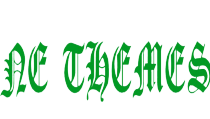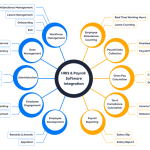Introduction to Milliyet
Founded in 1950, Milliyet is one of the most prominent and widely read newspapers in Turkey, playing a crucial role in shaping Turkish media and public opinion. With a history spanning over seven decades, Milliyet has earned a reputation for its investigative journalism, political analysis, and coverage of both domestic and international events. Over time, Milliyet has transitioned from being a traditional print newspaper to an influential digital platform, adapting to the modern era while continuing to address Turkey’s complex social and political landscape.
Milliyet’s journey began with the vision of serving as an independent and credible voice in a rapidly evolving country. Initially focused on domestic affairs, the newspaper expanded its coverage over time to include international events, offering readers a broader understanding of world affairs. Milliyet’s legacy is built on a foundation of trust and journalistic integrity, but like all media outlets, it has faced challenges, including issues related to censorship, political pressure, and changing ownership.
The Evolution of Turkish Media
Before Milliyet became a household name, the Turkish media landscape was shaped by the country’s historical and political development. Early journalism in Turkey was marked by the establishment of newspapers during the Ottoman Empire. By the late 19th century, newspapers began to emerge as important tools for disseminating information, though they were often subject to strict governmental oversight. The transition from the Ottoman to the Turkish Republic brought new freedoms for the press, but with those freedoms came the responsibility of navigating political sensitivities.
The 20th century saw the rise of independent media, but this independence was frequently compromised by political intervention. Turkey’s media evolved through periods of liberalization and repression, and newspapers like Milliyet had to carefully balance their editorial stances to maintain both credibility and survival. In this turbulent environment, Milliyet grew to prominence by offering balanced reporting while striving to provide a voice for democratic discourse.
The Birth of Milliyet
Milliyet was established in 1950 by journalist Ali Naci Karacan, who envisioned the paper as a reliable source of information in an era of political transformation. Turkey, having recently transitioned from a one-party system to a multi-party democracy, was at a crossroads, and there was a growing demand for independent journalism. Milliyet sought to fill that gap, with a commitment to truth, impartiality, and serving as a platform for diverse political views.
From the outset, Milliyet faced numerous challenges, including political pressure and financial instability. However, Karacan’s leadership and the dedication of the early editorial team allowed the newspaper to grow rapidly. By the 1960s, Milliyet had become one of Turkey’s most respected newspapers, known for its investigative journalism, insightful editorials, and commitment to reporting on social and political issues without fear or favor.
Milliyet’s Role in Turkish Media
Milliyet has always played a central role in the Turkish media landscape. It is renowned for its in-depth coverage of political events, including elections, government policies, and the country’s relations with the rest of the world. Throughout its history, Milliyet has maintained a commitment to providing accurate and unbiased news, which has contributed to its influence on public opinion.
The newspaper has also been a platform for intellectual discourse, publishing articles by prominent thinkers, academics, and political figures. Milliyet’s role in fostering debate and encouraging critical thought has been a vital part of its identity, helping to shape Turkey’s democratic evolution. In addition, the newspaper has contributed to the development of Turkish journalism, with many of its reporters and editors going on to have influential careers in the media and politics.
Notable Journalists and Editors
Over the years, Milliyet has been home to some of Turkey’s most respected journalists and editors. One of the most influential figures in Milliyet’s history is Abdi İpekçi, a pioneering editor who led the paper during its golden years in the 1960s and 1970s. İpekçi’s commitment to investigative journalism and his fearless approach to reporting on political corruption made him a national icon.
Other prominent figures who have contributed to Milliyet’s success include columnists like Hasan Cemal and Can Dündar, who have been known for their insightful political commentary and investigative work. These journalists have not only shaped Milliyet’s editorial voice but also played a significant role in advancing press freedom in Turkey, often at great personal risk.
Editorial Stance and Evolution
Milliyet’s editorial stance has evolved over time, reflecting the changing political landscape of Turkey. In its early years, the newspaper was known for its liberal and progressive outlook, advocating for democratic reforms and human rights. However, as political power dynamics in Turkey shifted, so too did Milliyet’s editorial approach.
During the 1980s and 1990s, the newspaper became more aligned with centrist and pro-government perspectives, particularly under the influence of its changing ownership. This shift was partly a response to the increasing pressures faced by the media in Turkey, including censorship and the risk of legal action against journalists. Despite these challenges, Milliyet has continued to strive for a balance between maintaining editorial independence and navigating the complex realities of operating in a politically charged environment.
Ownership Changes Over the Decades
Like many major newspapers, Milliyet has undergone several ownership changes throughout its history. Originally founded by Ali Naci Karacan, the newspaper was later sold to Aydın Doğan, a prominent media mogul, in the 1970s. Under Doğan’s ownership, Milliyet continued to expand its influence, but it also faced growing criticism for becoming more aligned with corporate and political interests.
In 2011, Milliyet was acquired by the Demirören Group, a conglomerate with close ties to the Turkish government. This change in ownership sparked concerns about the newspaper’s editorial independence, as many feared that Milliyet would become more susceptible to political pressure. Despite these concerns, the newspaper has continued to operate as a leading voice in Turkish journalism, although its content has undoubtedly been shaped by the interests of its owners.
Coverage of Major Historical Events
Milliyet’s coverage of Turkey’s significant historical events has cemented its place as a central pillar of Turkish journalism. From military coups to civil unrest, elections to economic crises, Milliyet has been at the forefront, providing detailed reports and nuanced analysis of each critical moment. The paper’s reporting on the 1980 military coup, for example, was a watershed moment. Despite the severe restrictions on press freedom during that period, Milliyet found ways to cover the military’s rise to power and the suppression of political liberties with a tone of cautious criticism, earning respect from readers and journalists alike.
The newspaper also played a crucial role in covering Turkey’s accession talks with the European Union, chronicling the economic and political reforms Turkey undertook in the early 2000s. Milliyet provided in-depth coverage of the political shifts associated with these reforms, including the rise of the Justice and Development Party (AKP) and its impact on Turkish society. International readers frequently turned to Milliyet for insights into Turkey’s changing relationship with Europe and the Middle East, thus expanding the newspaper’s global influence.
Technological Advancements and Adaptations
As traditional print media began to face the inevitable challenges brought about by digital disruption, Milliyet adeptly embraced technological advancements. The newspaper launched its online platform early, in the 1990s, and gradually built a robust digital presence. With the rise of mobile technology and social media, Milliyet adapted its content strategy to suit the preferences of modern readers.
Today, the newspaper is not just available in its traditional paper format but also as an interactive digital edition, complete with multimedia content, including videos, infographics, and live news updates. This adaptability has allowed Milliyet to maintain its readership in a highly competitive and rapidly changing media landscape. Moreover, Milliyet’s social media platforms, particularly Twitter and Facebook, serve as key tools for breaking news, with real-time updates drawing in readers who demand instant access to current events.
Milliyet’s Investigative Journalism
Milliyet has long been renowned for its investigative journalism, a core element of its brand identity. Over the decades, the paper has produced groundbreaking reports that have exposed political corruption, human rights abuses, and social injustices. One of the most impactful examples of its investigative work was the paper’s coverage of the Susurluk scandal in 1996, which revealed a deep nexus between the Turkish government, organized crime, and far-right militant groups. This exposé prompted widespread public outrage and calls for government accountability, demonstrating the power of the press in holding the authorities to account.
Beyond political investigations, Milliyet has also been instrumental in exposing issues related to the environment, women’s rights, and minority communities in Turkey. The paper’s willingness to tackle sensitive topics, often at great personal and institutional risk, has earned it a reputation as one of Turkey’s most courageous media outlets.
Comparing Milliyet with Other Turkish Newspapers
In the vast landscape of Turkish media, Milliyet holds a unique position. While it has many competitors, including Hürriyet, Cumhuriyet, and Sabah, Milliyet distinguishes itself through its balanced approach to news reporting. Where Hürriyet may lean more heavily into populist coverage and Cumhuriyet focuses on a staunchly secular, left-leaning perspective, Milliyet often tries to maintain a centrist, more neutral editorial line.
Milliyet has consistently garnered respect for its in-depth political analysis, which offers a more comprehensive understanding of the implications of government policies compared to the often sensational headlines seen in other publications. Its mix of investigative reporting, cultural commentary, and international coverage places it firmly within the top tier of Turkish newspapers, appealing to a broad readership.
Censorship and Press Freedom in Turkey
The issue of press freedom in Turkey is a delicate one, and Milliyet, like many other media outlets, has found itself caught between the need for honest reporting and the demands of government oversight. Turkey ranks low on global press freedom indexes, and Milliyet has not been immune to the pressures that come with operating in such an environment. Throughout its history, the newspaper has faced numerous instances of censorship, from subtle editorial interventions to outright bans on publishing certain stories.
The increasing control of media by government-affiliated companies has only exacerbated the situation. Under the ownership of the Demirören Group, Milliyet has at times been criticized for self-censorship, particularly in its coverage of government policies. Nonetheless, individual journalists within the newspaper have continued to push the boundaries, and Milliyet still serves as an essential outlet for those seeking more balanced news in an increasingly polarized media environment.
Milliyet’s Digital Transformation
In the face of declining print readership and the rise of online media, Milliyet has successfully transformed itself into a digital-first news outlet. The newspaper’s digital platform is now a primary source of revenue, supported by both subscription models and online advertising. The transition to digital has also allowed Milliyet to reach a younger, more tech-savvy audience, which consumes news primarily via mobile devices and social media platforms.
Milliyet’s website offers readers a personalized experience, with news categorized into sections like politics, business, sports, and entertainment. Additionally, the publication has embraced multimedia content, producing podcasts, video interviews, and interactive data-driven stories. This approach has helped Milliyet stay relevant in the digital age while still maintaining the quality of its reporting.
Milliyet’s Editorial Line in Modern Politics
In recent years, Milliyet’s editorial line has aligned more closely with the prevailing political currents in Turkey. While historically the paper has held a liberal, progressive stance, under new ownership and amid increased government scrutiny, Milliyet’s voice has become more moderate, particularly in its coverage of the ruling AKP and President Recep Tayyip Erdoğan. The newspaper now often adopts a more cautious tone when reporting on controversial political issues, though it continues to provide space for dissenting voices and critical opinions.
Milliyet’s current editorial stance can be seen as a reflection of the broader challenges facing Turkish media, where political polarization has forced many outlets to align with either the government or the opposition. Despite this, Milliyet retains a reputation for thoughtful political analysis, and many of its columnists continue to critique government policies, albeit within certain boundaries.
Impact of Economic Pressures on Milliyet
Like many newspapers worldwide, Milliyet has felt the impact of declining advertising revenue and increased competition from digital media. The financial challenges faced by the paper have led to changes in its business model, with a greater focus on digital subscriptions and diversified revenue streams. While Milliyet continues to operate as a leading news outlet, it has had to downsize its staff in recent years and make adjustments to its print edition to remain financially viable.
Economic pressures have also influenced Milliyet’s content, with advertisers exerting greater influence over editorial decisions. However, the paper’s commitment to quality journalism has not wavered, and it continues to invest in investigative reporting and high-quality features, albeit on a more constrained budget.
Milliyet’s Influence on Turkish Society
Milliyet’s role in shaping public opinion in Turkey cannot be overstated. The newspaper has played a critical part in informing the Turkish public about key political and social issues, often acting as a mediator between the state and society. Over the decades, Milliyet has been instrumental in fostering discussions on topics like women’s rights, environmental protection, and minority issues.
The newspaper has also provided a platform for cultural discourse, publishing literary critiques, opinion pieces on the arts, and features on Turkish cinema and music. Milliyet’s weekend editions, which often focus on lifestyle, culture, and the arts, have been particularly popular with readers who seek more than just political news.
Current Readership and Market Position
Milliyet remains one of Turkey’s most widely read newspapers, with a readership that spans various demographic groups. While its print circulation has declined in recent years, its online platform has experienced steady growth, attracting millions of visitors each month. The newspaper’s core readership consists of middle-class, educated individuals who value balanced and in-depth reporting.
Milliyet’s market position remains strong despite the challenges posed by digital disruption and political pressures. Its ability to maintain a loyal readership, combined with its digital transformation efforts, ensures that Milliyet continues to be a significant player in Turkey’s media landscape.
Milliyet’s Global Reach and International Partnerships
While Milliyet’s primary audience is Turkish, the newspaper has extended its reach beyond national borders. Its international news coverage and partnerships with foreign media outlets have given it a global perspective, making it a valuable source of information for both Turkish expatriates and foreign readers interested in Turkish affairs.
Milliyet’s collaboration with international organizations, such as the BBC and Reuters, has further solidified its reputation as a credible and authoritative source of news. These partnerships have enabled the newspaper to provide more comprehensive coverage of global events, enhancing its appeal to a broader audience.
Awards and Recognition
Milliyet has received numerous national and international journalism awards throughout its history. These accolades recognize the newspaper’s commitment to excellence in reporting, investigative journalism, and editorial integrity. Notable awards include the Sedat Simavi Journalism Award, one of Turkey’s most prestigious journalism honors, and international recognitions for its in-depth reporting on issues such as human rights, political corruption, and environmental sustainability.
These awards are a testament to Milliyet’s continued dedication to quality journalism, even in the face of adversity.
Controversies and Scandals
Like any long-established media institution, Milliyet has faced its share of controversies. Perhaps the most significant was its involvement in the 1993 assassination of its editor-in-chief, Abdi İpekçi, who was murdered by ultra-nationalists due to his outspoken criticism of political violence and his calls for democratic reform. This event marked a turning point for the newspaper and highlighted the dangers faced by journalists in Turkey.
In more recent years, Milliyet has been criticized for self-censorship, particularly in its coverage of sensitive political topics. Allegations that the newspaper has bowed to pressure from its owners and the government have tarnished its reputation in the eyes of some readers. Despite these controversies, Milliyet remains a trusted source of news for many, though it operates in a media landscape fraught with political and economic challenges.
How Milliyet Adapts to Changing Media Landscapes
Milliyet’s ability to adapt to the changing media landscape has been one of its defining strengths in recent years. With the rise of digital media and the decline of traditional print journalism, many established newspapers around the world have struggled to remain relevant. However, Milliyet has proactively embraced new technologies and shifting consumer habits, ensuring its continued relevance in the 21st century.
Milliyet was among the first Turkish newspapers to fully integrate digital tools into its newsroom. The newspaper now offers an array of digital content, including live news updates, video journalism, interactive articles, and podcasts. This transition has been crucial for engaging younger readers, who are increasingly turning to digital platforms and social media for news consumption.
The publication has also leveraged the power of social media to distribute its content more widely. Milliyet has developed a strong presence on platforms like Twitter, Facebook, and Instagram, where it regularly shares news articles, breaking news, and multimedia content. This approach not only helps Milliyet reach new audiences but also enables the newspaper to engage directly with readers, offering real-time responses to feedback and questions.
Moreover, Milliyet has recognized the growing importance of mobile news consumption, offering a mobile-optimized website and dedicated apps for iOS and Android devices. These platforms allow readers to access news on the go, with user-friendly interfaces that cater to the modern reader’s need for speed and convenience.
Impact on Turkish Literature and Culture
Milliyet has had a long-standing influence on Turkish literature and culture. From the early days of its publication, the newspaper has provided a platform for writers, intellectuals, and artists to share their work and ideas with a broader audience. Its Sunday literary supplements, for example, have featured articles and essays on Turkish and world literature, interviews with prominent authors, and reviews of new books.
The newspaper has also been instrumental in promoting Turkish cinema and theater. Its coverage of the arts extends beyond simple reportage, offering critical analysis and thoughtful commentary on cultural trends in Turkey and abroad. Over the years, Milliyet has contributed to shaping the country’s cultural discourse, encouraging readers to engage with contemporary artistic movements and ideas.
One of the most significant ways Milliyet has influenced Turkish culture is through its literary prizes and recognition programs. The Milliyet Literature Awards, for instance, have been a platform for emerging writers to gain recognition and introduce their work to a wider audience. Through these initiatives, the newspaper has fostered a rich cultural dialogue in Turkey, helping to nurture the country’s vibrant literary scene.
Future of Milliyet in an Evolving Media World
As Milliyet moves forward, it faces both opportunities and challenges. The media landscape is continually evolving, with new technologies and changing reader habits demanding constant adaptation. One of the key challenges Milliyet will face is maintaining its balance between quality journalism and the financial pressures that come with running a large media organization in the digital age.
One of Milliyet’s most promising opportunities lies in expanding its multimedia capabilities. The increasing popularity of video content and podcasts offers new ways to engage audiences, particularly younger generations. Milliyet has already begun exploring these formats, but further investment in multimedia journalism could help the newspaper stand out in an increasingly crowded digital marketplace.
Moreover, Milliyet’s future success will likely depend on its ability to maintain editorial independence while navigating the complex political environment in Turkey. In a country where press freedom is under significant strain, Milliyet must continue to assert its commitment to unbiased reporting and holding power to account. By doing so, it can reinforce its role as a trusted source of news and analysis in Turkish society.
International collaborations may also play a role in Milliyet’s future. The newspaper has established partnerships with foreign media outlets in the past, and expanding these relationships could offer new opportunities for growth. As global news consumption becomes more interconnected, Milliyet’s ability to cover international stories from a Turkish perspective will be an asset in attracting a more diverse readership.
Milliyet’s Role in Covering the COVID-19 Pandemic
The COVID-19 pandemic was one of the most significant global events of the 21st century, and Milliyet played a vital role in informing the Turkish public throughout the crisis. As the pandemic unfolded, the newspaper provided extensive coverage of the health implications, government policies, and social impact of the virus. Milliyet’s reporters worked tirelessly to keep the public updated on the latest developments, including the spread of the virus, vaccine rollouts, and economic fallout.
Milliyet’s coverage extended beyond simple news reporting, offering readers expert opinions from health professionals, economists, and social scientists. The paper published interviews with leading epidemiologists and public health officials, helping to dispel misinformation and provide readers with accurate, science-based information. Additionally, Milliyet ran features on the personal experiences of those affected by the virus, bringing a human element to the crisis and fostering a sense of solidarity among its readership.
The newspaper also played an important role in holding the government accountable for its handling of the pandemic. Milliyet’s investigative reporting highlighted the shortcomings in Turkey’s health infrastructure, as well as the economic challenges faced by businesses and individuals. This critical coverage was essential in prompting public debate and encouraging policymakers to take more effective action.
Conclusion
Milliyet’s enduring legacy as one of Turkey’s most influential newspapers is a testament to its commitment to journalistic integrity, adaptability, and its role in shaping the national discourse. From its humble beginnings in 1950 to its current status as a digital-first news platform, Milliyet has weathered political and economic challenges while maintaining its dedication to providing reliable news and fostering intellectual debate.
The newspaper’s influence extends beyond the realm of politics and news; it has played a significant role in Turkish culture, literature, and the arts. Milliyet has consistently provided a platform for thought leaders and cultural figures to engage with the public, shaping Turkey’s cultural landscape in the process.
As Milliyet moves into the future, it faces both challenges and opportunities. The digital age has transformed how people consume news, and the newspaper will need to continue innovating to stay relevant. By embracing new technologies and maintaining its editorial independence, Milliyet has the potential to remain a vital force in Turkish media for decades to come.
Ultimately, Milliyet’s greatest strength lies in its ability to adapt to changing times while holding true to the core principles of journalism: accuracy, fairness, and a commitment to serving the public interest. As Turkey continues to evolve, so too will Milliyet, ensuring its continued role as a trusted source of news and analysis in the years ahead.
FAQs
What is the history behind Milliyet’s establishment? Milliyet was founded in 1950 by Ali Naci Karacan, with the vision of creating an independent and credible news outlet in post-World War II Turkey. The newspaper quickly gained prominence for its in-depth reporting and balanced coverage of political and social issues.
How has Milliyet adapted to the digital age? Milliyet has embraced the digital age by launching an online platform, offering mobile apps, and utilizing social media to distribute its content. It has also invested in multimedia content, such as videos and podcasts, to engage younger, digital-first readers.
What role did Milliyet play during the COVID-19 pandemic? Milliyet provided comprehensive coverage of the COVID-19 pandemic, offering expert analysis, health information, and critical reporting on the government’s response to the crisis. The newspaper was instrumental in dispelling misinformation and providing the public with reliable information.
How has Milliyet influenced Turkish culture? Milliyet has had a significant impact on Turkish culture through its literary supplements, coverage of the arts, and support for emerging writers. The newspaper has been a platform for cultural discourse, helping shape the conversation around literature, cinema, and the arts in Turkey.
What challenges does Milliyet face in today’s media landscape? Milliyet faces challenges such as political pressure, economic constraints, and the need to innovate in a rapidly changing digital landscape. Maintaining editorial independence while adapting to new media formats will be crucial for its continued success.
Who are some of the notable figures associated with Milliyet? Some of the most notable figures associated with Milliyet include Abdi İpekçi, the revered editor-in-chief who was assassinated in 1979, and journalists like Can Dündar and Hasan Cemal, who have contributed to the newspaper’s reputation for investigative reporting and political analysis.











